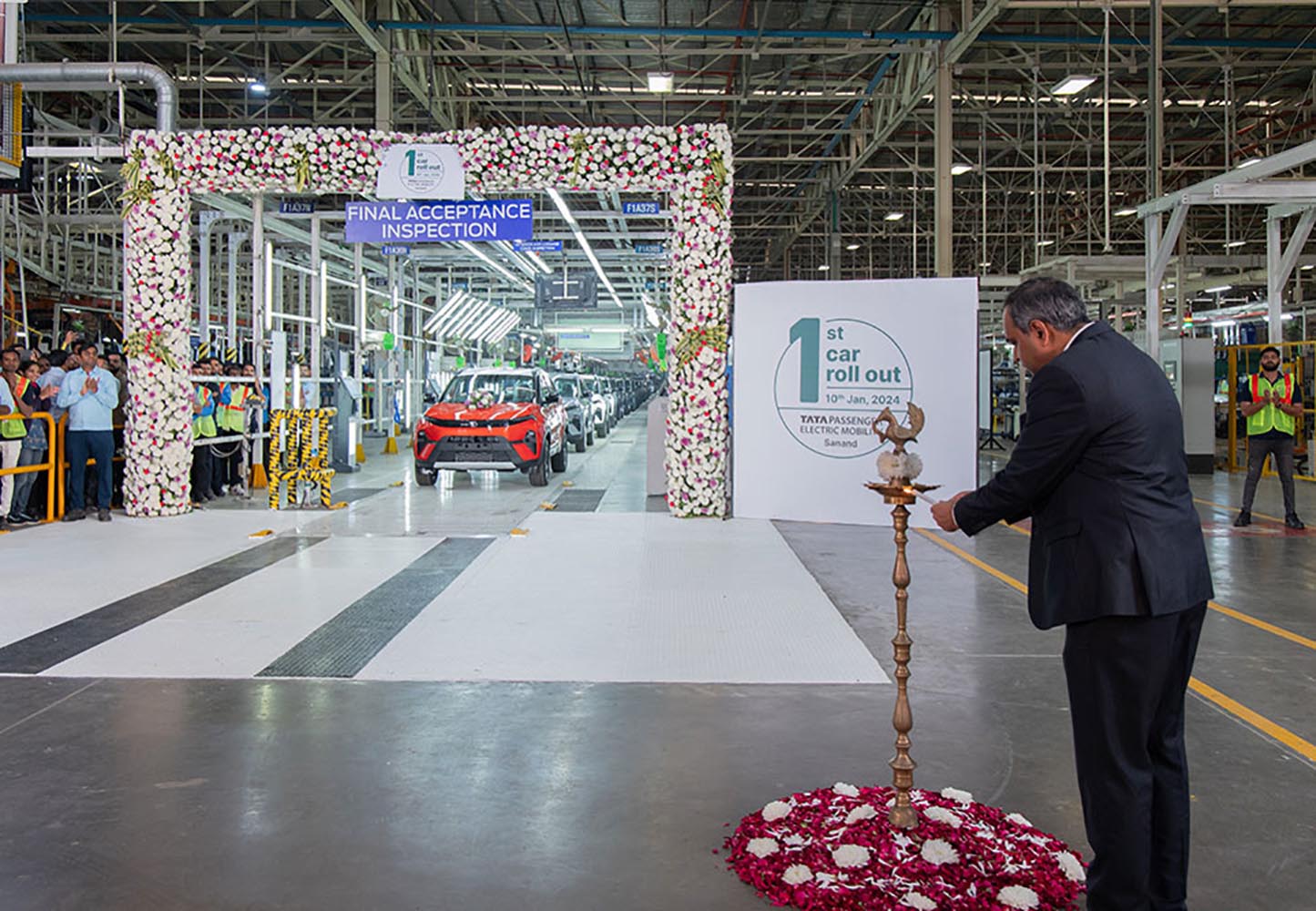
Tata Motors begins electric vehicle production at new India plant
Tata Passenger Electric Mobility Ltd. (TPEM), a subsidiary of India’s Tata Motors, has started manufacturing electric vehicles at its recently acquired factory in Sanand, Gujarat, the company announced.
TPEM, Tata’s electric vehicle subsidiary, held an event celebrating the rollout of the first Tata-branded car from the facility. TPEM Managing Director Shailesh Chandra said the start of production marks a major milestone for Tata Motors just 12 months after acquiring and retrofitting the plant to accommodate electric vehicle manufacturing.
“Witnessing the first car roll out of the new TPEM facility in Sanand is a proud moment for us,” Chandra said. “I extend my heartfelt gratitude to the Government of Gujarat for its wholesome support and our employees without whom this accomplishment would not have been possible.”
The 300,000 square-foot, 460-acre facility was originally owned by Ford India before TPEM purchased it in January 2023. After a year of renovations, including adding new equipment to support electric vehicle assembly, the plant is positioned to play a key role in Tata Motors’ growth strategy, Chandra noted.
The facility has capacity to produce 300,000 vehicles per year, expandable to 420,000. Tata Motors Passenger and Electric Vehicles division has charted strong growth recently, with plans to sustain momentum through investments in future product pipelines and manufacturing assets like the Sanand site, according to Chandra.
Plant retooled with advanced technology
The Sanand facility contains stamping, body construction, paint and final vehicle assembly sections. Tata focused heavily on implementing automation and the latest technologies during the plant’s transformation.
Major upgrades executed across the plant’s four main production shops include:
- New stamping dies and additional robots in pressing lines
- Modified welding lines with supplementary robots and tooling
- Enhanced paint section robotic systems for spray application and waxing
- Assembly section handling upgrades and improved end-of-line testing
The facility currently employees more than 1,000 staffers, including technicians, with plans to add 1,000 jobs within the next six months as production scales up. Tata Motors has also prioritised workforce training, providing higher education opportunities to employees relevant to automotive engineering and manufacturing roles.
In keeping with Tata’s sustainability commitments, the plant features 50 kilowatt solar rooftop installation and is designed as a water neutral facility.
Accelerating India’s EV transition
The Sanand plant will manufacture internal combustion engine vehicles and electric vehicles as Tata Motors advances its electrification strategy. The company currently leads India’s transition to electric mobility through its popular Tata-branded EVs recognised for performance, tech features and low operating costs.
By bringing key industry players together under an initiative called ‘Tata UniEVerse,’ Tata Motors and parent Tata Group intend to collaboratively drive mass EV adoption in India through charging infrastructure development, automotive R&D and more.
TPEM represents a key part of this effort with plans to invest USD2 billion over the next four years on priorities like new electric vehicle models, dedicated EV platform development and manufacturing, and battery advancements.
TPEM represents a key part of this effort with plans to invest USD2 billion over the next four years on priorities like new electric vehicle models, dedicated EV platform development and manufacturing, and battery advancements.














